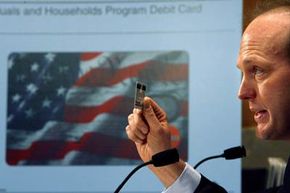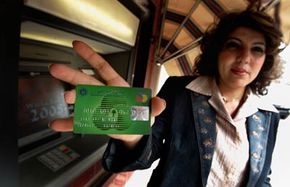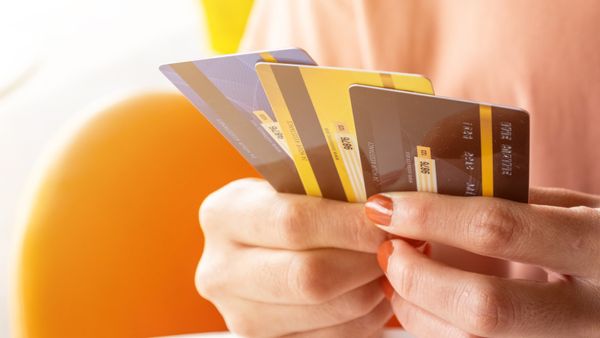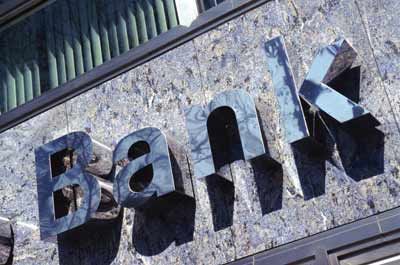Debit cards and credit cards each have advantages and disadvantages. The biggest advantage of debit cards over credit cards is that you don't need to worry about interest rates, monthly bills and finance charges. Since a debit card uses only the money you actually have, you won't build up an unmanageable debt by using it, as you might with unchecked use of a credit card. Credit cards, after all, accrue interest on unpaid balances. Unless you pay off your balance every month, you will always end up paying more for a TV, for example, than what the TV actually cost.
Credit card limits are often quite high, sometimes significantly higher than the average monthly balance in your checking account. If you aren't careful, your credit card balance can grow out of control. The limit on your debit card, on the other hand, is whatever you have in your checking account.
Another advantage of the debit card is how easy it is to acquire one. You can get a debit card with pretty much any checking account, whereas you can obtain a credit card only by applying for one. A debit card does not require an investigation into your credit history; most credit cards do require a credit check.
Just as the advantage of a debit card is that it draws on your actual funds, the disadvantage of a debit card is that you are limited by those funds. You can overdraw your checking account, which can result in your bank charging an overdraft fee. These fees can reach up to $25 [source: Bankrate]. But you can also go over your credit card limit, which results in a similar fee, and this fee can accrue interest. Debit cards don't license you to be irresponsible in your spending; you should always keep tabs on your transactions and account balance.
One advantage of credit cards over debit cards is that they can help you to make very large purchases that would be otherwise impossible, such as that plasma TV you've been eyeing. But it is easy with credit cards to feel like you can buy whatever you want, whenever you want. Live and spend within your means. (For more information on how to do that, take a look at How Discretionary Expenses Work and Ten Tips for Staying on Budget.)
A disadvantage of debit cards is the amount of buying protection provided to you by law. Debit card transactions very much resemble cash transactions. The money changes hands quickly, and it's difficult to get it back. If you want to return a broken or unsatisfactory item you purchased with a debit card, many businesses will only give you an exchange or store credit.
Also, it's worth noting that the laws that police stolen debit cards aren't as friendly as the laws that police stolen credit cards. You may find it more difficult to get your money when a highway robber steals your debit card than when a highway robber lifts your credit card. Learn more on the next page.



